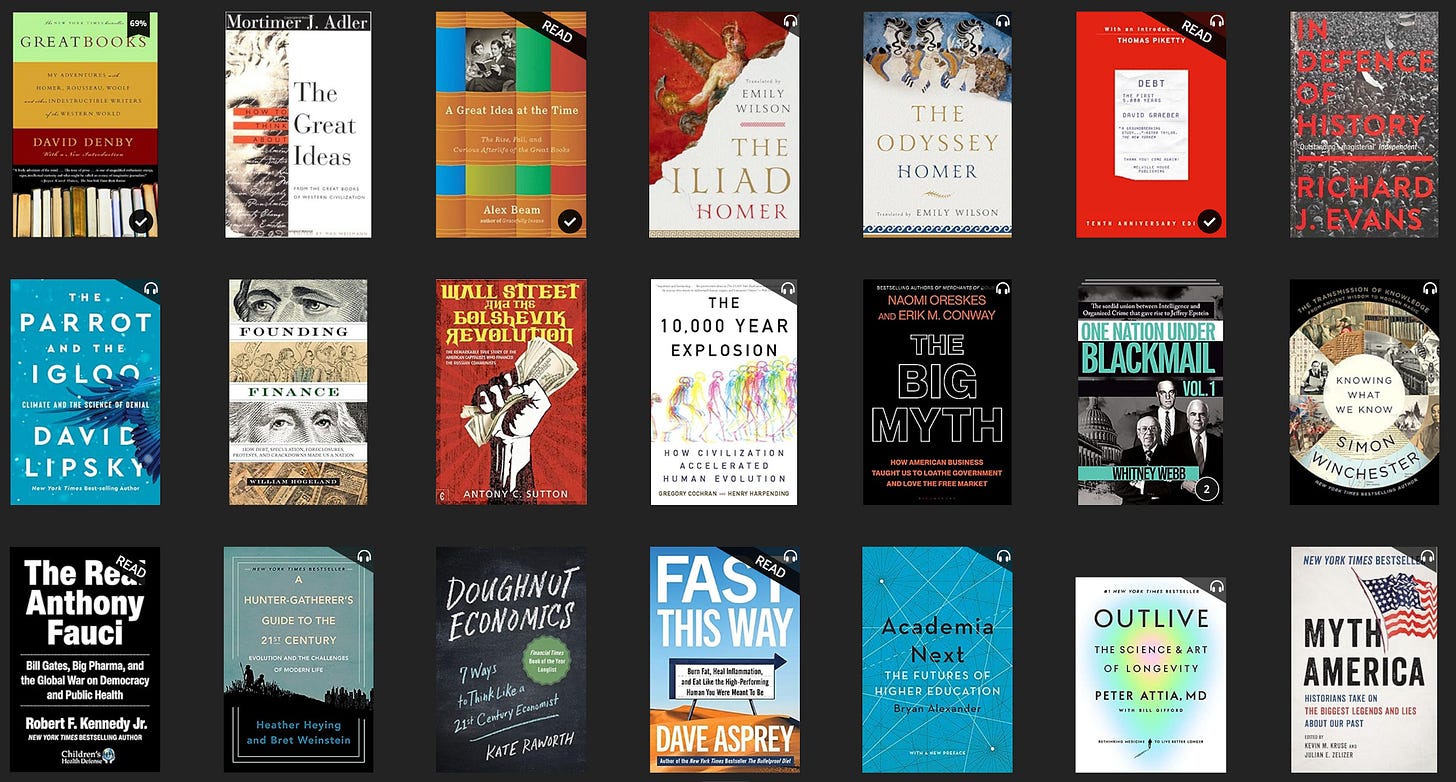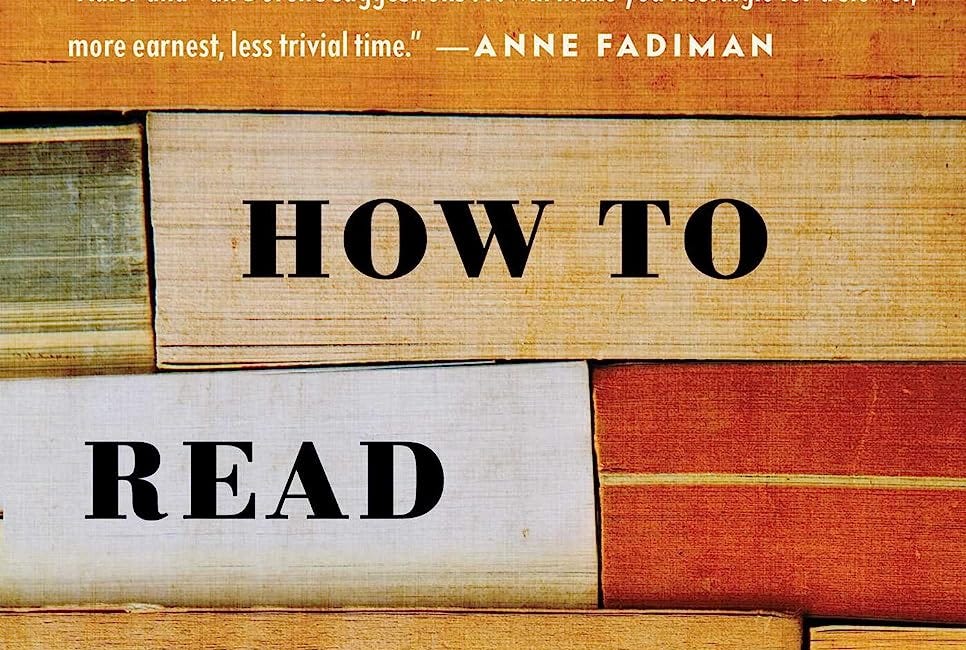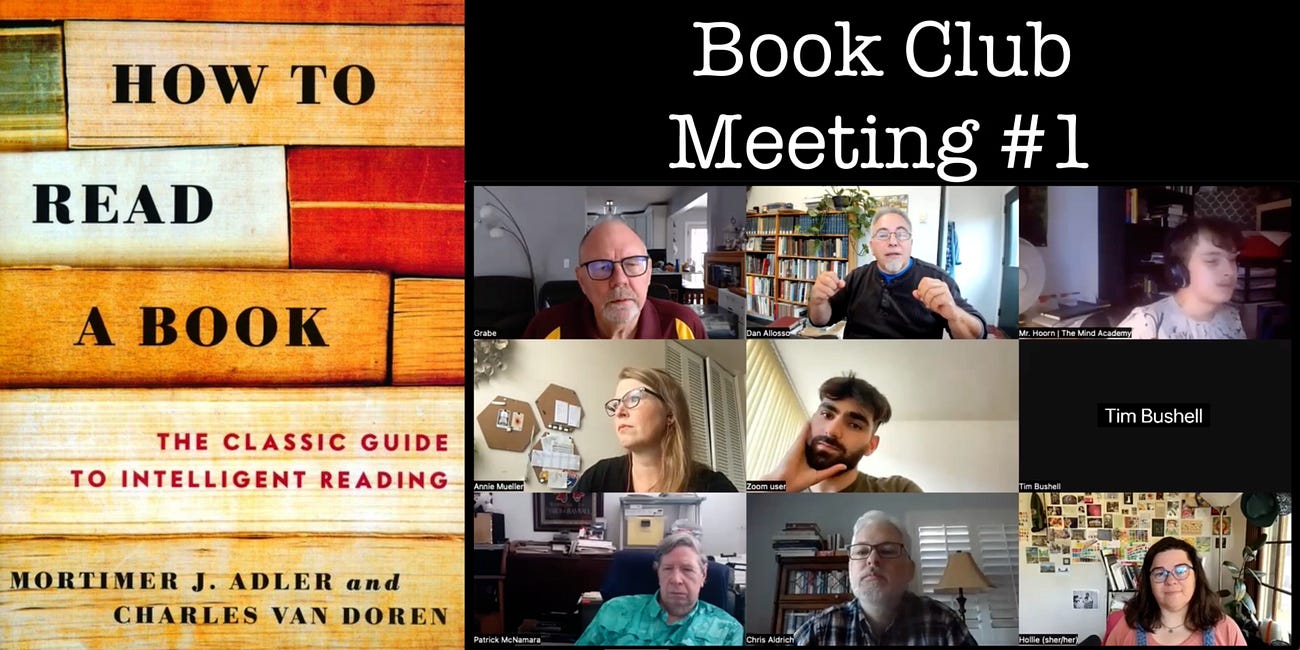As I'm rereading Adler and Van Doren's 1972 version of How to Read a Book and making notes for my review, I'm reminded that in addition to a bunch of interesting and useful pointers I collected from this book, there was a lot I passed by. Either because I didn't find it that useful or because I disagreed with what the authors were saying or implying. This was interesting to think about, as I was making my notes on Chapter 11, which is about what to do when you agree or disagree with an author.
I think that's a valuable chapter and I agree with a lot of their advice. But one of my main take-aways from it, which reminded me of my thoughts back at the beginning of the book, was that I don't think it's as binary as they're portraying it as being. All along, Adler and Van Doren have been discussing the books their readers will be reading as sort-of monumental structures. There was a lot of talk, earlier in the book, about approaching books (especially Great Books) almost as a supplicant at an altar. I've already said some things about this and I'll be returning to it in my final review of the entire book and in the way I respond to the ideas Adler and Van Doren raise, in my own.
For now, I'll reiterate that I think a lot of where I differ from the authors of How to Read a Book has to do with why we read books. I'm not particularly enthused about the claim that the authors of books (even the Great Books) are my "betters" and I need to shut up and listen. Adler and Van Doren are inconsistent on this point, sometimes saying exactly this and then at other times saying the reader needs to engage in a dialogue with the author. I think that approach is more useful for me, and I tried telling myself that the authors were writing for a range of readers that included young students just starting out. But even in that case, I didn't love the "shut up and listen" message. Then I thought, maybe they were reacting to the beginnings of post-modern cultural relativism, where the author's authority was under attack. That may be, but then (like their screed against speed-reading) this part of the book is dated and no longer relevant.
And this illustrates my point, I think. A book isn't a single thing. It's a collection of ideas and statements and evidence and argument and narrative, strung together in a more-or-less logical order and shoved between two covers. So I don't think it's always necessary to respond to it with either complete agreement or rejection, just as I don't think it's necessary to treat it as an oracle. There are plenty of ideas I find useful and valuable in How to Read a Book, but that doesn't mean I have to accept everything the authors say. The idea that I ought to, I think, leads to the situation we have today, where "thought leaders" must be either followed blindly or cancelled.
As I've argued from the start (you can see me harping about this point in several of the Book Club meeting videos!), I think readers' goals have everything to do with how they approach a text. For example, as a historian I don't read histories in order to be "convinced" by an author. I read to add knowledge and perspective to a worldview I have already substantially constructed. I think this is the case for most readers. No one really approaches any set of ideas as a completely blank slate. Even if we don't know a lot about the subject at hand, we have a vast collection of ideas that help us understand how the world works. I'd argue that we're always using these to evaluate new ideas we encounter. And that it's rare that a new idea is so far out that a worldview we've constructed over our entire lifetime isn't useful.
I almost always read a book for information rather than for "knowledge" in the sense Adler and Van Doren use the term. The evidence and sources authors use are often valuable information for my own ideas. But also the arguments and interpretations. I tend to think of myself as a colleague of the author I'm reading rather than as a student. And I think this is more about attitude than educational achievement. I suspect I was always a bit skeptical that authors were my "betters". Everyone should be. Even the greatest author, philosopher, or scientist was a flawed and fallible human. That's not grounds for cancellation, just as the beauty or truth or significance of their writing isn't grounds for beatification.
If we can focus more on why we're reading, we might get better results. Have we just been brow-beaten into a sense of obligation? I think this leads to the type of disappointment expressed by Alex Beam in his recent book, A Great Idea at the Time, which I've just read and will review soon. I don't expect to be disappointed by the Great Books because I'm not expecting the simple act of reading them is going to provide me with the type of "knowledge" Adler and Van Doren promised. For me, I think it's more like an exercise in cultural history for the Western tradition. I'm hoping to learn more about what some important western thinkers thought. How they understood the world (and how some of their readers tried to, as well), and how that changed over time.
Links: If you found this interesting, you might be interested in these related posts:
How to Read a Book, Chapter 1
Mortimer J. Adler and Charles Van Doren First edition 1940. I'm reading the 1972 edition, which is almost identical to the current edition you can buy today on Kindle. I'll post some ideas that occurr…
How To Read Meeting 1
We begin discussing Mortimer Adler and Mark Van Doren’s classic, How To Read A Book.






